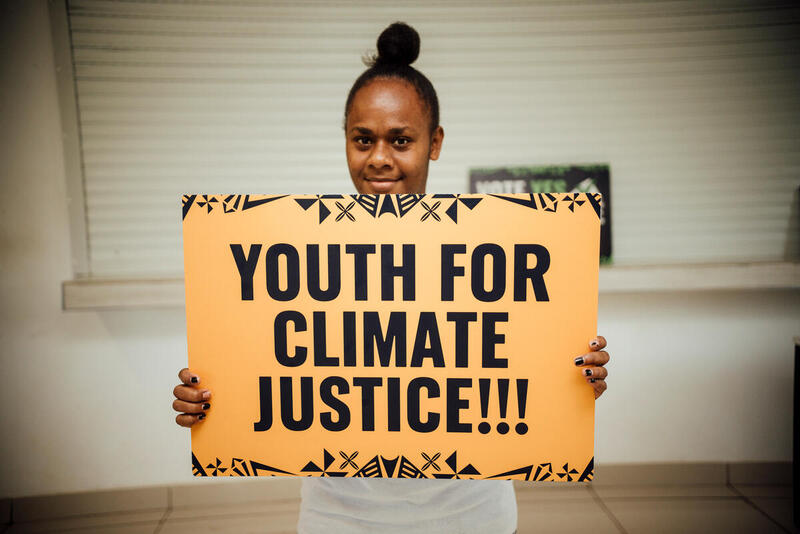The United Nations has ordered the International Court of Justice to advise states on their legal responsibilities on climate change, following a global initiative led by Vanuatu
One of the world’s most important courts will advise states on their responsibilities for curbing global emissions and the legal consequences of inaction, following unprecedented consensus on the subject at the UN.
At a general assembly meeting in New York today, governments approved a resolution recognising the huge challenge of climate change and calling on the International Court of Justice (ICJ) to provide an advisory opinion on how it intersects with international law.
Ishmael Kalsakau, prime minister of Vanuatu, which led the initiative alongside a group of young people, called the decision “a win for climate justice of epic proportions”.
The Pacific island nation is currently in a national state of emergency after two tropical cyclones devastated the island in the space of just a week.
‘A turning point’
An advisory opinion from the ICJ interprets existing international law rather than creating new legal obligations, and it is not legally binding. But it is highly influential.
Nilufer Oral, a member of the UN International Law Commission and director of the National University of Singapore’s Centre for International Law, said the opinion would “provide clarity and guidance on the legal obligations of states when it comes to climate change, and the legal consequences of failing to act”.
Among other things, it will consider states’ human rights responsibilities and their intergenerational duties.
The resolution marks “a turning point in the pursuit of climate justice,” said Caio Borges, law and climate coordinator at Brazil’’s Institute for Climate and Society.
“The court’s opinion will undoubtedly shape the trajectory of future international climate negotiations and climate litigation at both domestic and international levels,” Borges added.
Revealed: How Shell cashed in on dubious carbon offsets from Chinese rice paddies
Vanuatu’s climate change minister Ralph Regenvanu said there had been “overwhelming global support” for the resolution, which was co-sponsored by the vast majority of UN states. But it took four years to get to this point.
Cynthia Houniuhi was in her final year of law school at the University of the South Pacific in Fiji campus, doing a course on international environmental law, when her classmates began discussing ways of promoting climate justice. One of the ideas on their list was seeking an advisory opinion from the ICJ.
“To be honest, at first I was very hesitant when this idea was being discussed,” said Houniuhi. “I mean, let’s be real here; it was too ambitious. How can a small group of students from the Pacific region convince the majority of the UN members to support this initiative?”
What moved her, in the end, was seeing communities already doing their best to adapt to climate impacts, and watching the advocacy efforts of civil society and her government.
🎉 BREAKING: The UN General Assembly has passed by consensus the resolution calling for an ICJ advisory opinion on climate change and human rights pic.twitter.com/XgTF1M4el3
— Pacific Islands Students Fighting Climate Change (@pisfcc) March 29, 2023
“What is the use of learning all this knowledge if it’s not for our people to fight the single greatest threat to their security?” she asked herself. “This was an opportunity to do something bigger than ourselves, bigger than our fears.”
Houniuhi was one of 27 students to form Pacific Island Students Fighting Climate Change, who petitioned their teachers and lecturers about the idea, and crowdfunded 80 Fijian dollars to pay for a banner.
With growing support, they approached the Vanuatu government, which welcomed the idea and galvanised a core group of 18 countries. Houniuhi, who is now studying for a masters in environmental law at Sydney University, said the support shown her group has been “overwhelming”.
Cop28 host UAE tried to weaken global shipping’s climate ambition
Getting the explicit support of so many nations was the result of a huge diplomatic effort around the world, said ambassador Odo Tevi, Vanuatu’s permanent representative to the UN.
The resulting opinion will undoubtedly be used as a key piece of evidence in the growing number of climate lawsuits against domestic governments. Earlier today, for example, the European Court of Human Ri
Read More

